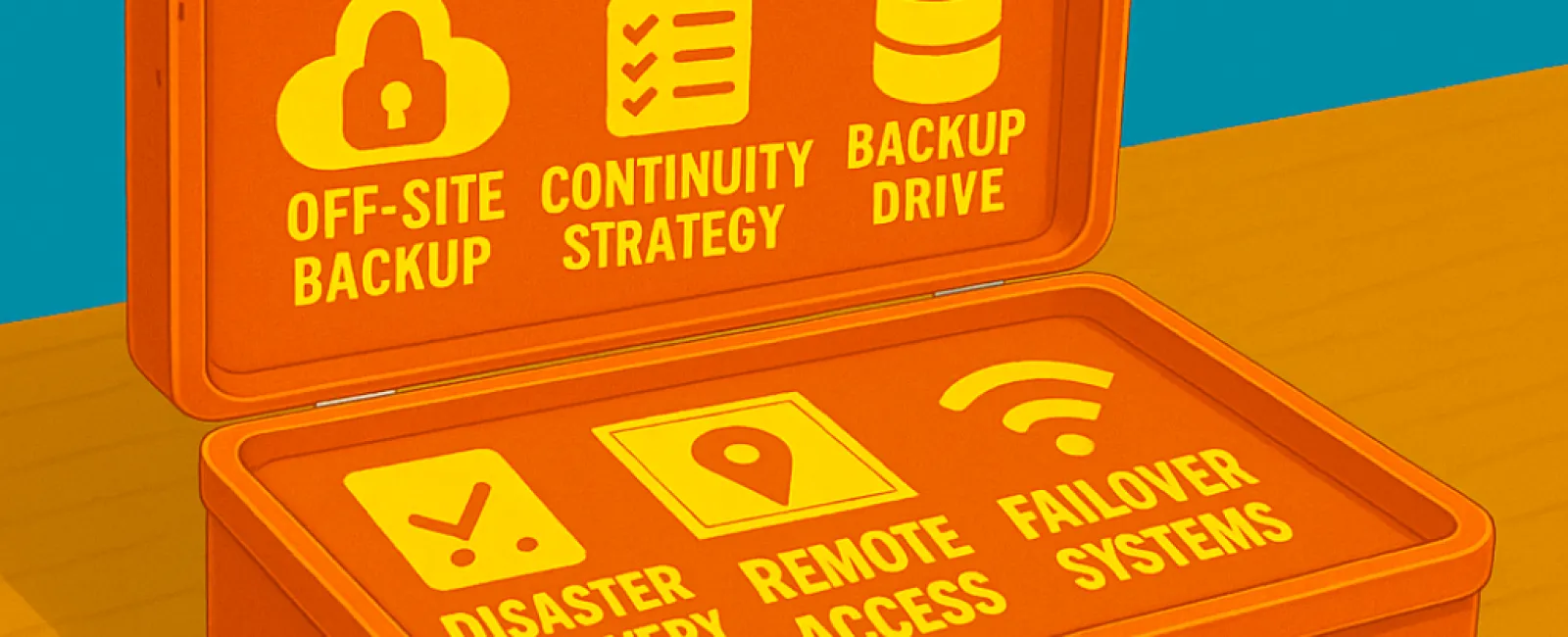July 28, 2025
Unexpected power failures, cyberattacks, hardware breakdowns, and natural calamities strike without warning, often causing severe damage to small businesses. Many believe that simply having backups suffices, but restoring files alone doesn't guarantee uninterrupted operations. If your team can't access critical systems, support remote work, or communicate effectively during disruptions, even brief interruptions can escalate into significant setbacks. Your trusted IT partner should equip you with more than just backups—they should deliver a comprehensive strategy to keep your business running smoothly through any crisis.
Backups Alone Won't Cut It — You Need a Robust Continuity Plan
Backups are vital, no doubt. But they represent just one piece of the puzzle. What truly safeguards your business is a proactive business continuity plan designed to maintain operations seamlessly during and after disruptions.
When systems fail, data becomes unreachable, or your physical office is compromised, relying solely on local backup files is insufficient. Without a well-defined plan to swiftly resume operations, your business faces potential losses in revenue, reputation, and regulatory compliance.
Understanding the Difference: Backups vs. Business Continuity
Many businesses mistake backups for complete protection:
● Backups enable data restoration.
● Continuity ensures your business stays fully operational regardless of the situation.
A solid continuity plan addresses critical questions such as:
● What is our recovery timeframe?
● Where will our team operate if the office is inaccessible?
● Which systems are absolutely essential?
● Who is responsible for initiating the recovery process?
It also incorporates key elements like:
● Encrypted, off-site, and tamper-proof backups
● Prioritized recovery objectives (RTO/RPO)
● Preparedness for remote work scenarios
● Redundant infrastructure and failover systems
● Regular disaster simulation drills
If your IT provider cannot confidently guide you through these essentials, you're not fully protected—you're merely fortunate so far.
Could This Really Happen to You?
This isn't fearmongering—it's a reality many businesses face. Recent incidents include:
● Florida hurricanes forced hundreds of businesses to shut down, leaving those without cloud access completely immobilized.
● North Carolina floods destroyed on-site servers, wiping out months of critical records and invoices.
● California wildfires razed entire office buildings in the Pacific Palisades, many lacking off-site recovery solutions.
● Numerous small businesses targeted by ransomware discovered their backups were either corrupted or never properly tested.
Disasters don't discriminate; they impact businesses of all sizes every day.
Essential Questions You Should Be Asking Today
If disaster struck tomorrow, could your business keep operating?
Challenge your IT provider with these questions:
● How quickly can we recover from a ransomware attack?
● Are our backups regularly tested, and what systems do they cover?
● What's the contingency plan if a flood or fire disables our office?
● Is our continuity strategy compliant with industry standards?
● Can we maintain client services if our team must work remotely?
If you're not absolutely certain of the answers, your business may already be vulnerable.
Disasters Are Inevitable. Downtime Doesn't Have To Be.
While you can't prevent every outage, storm, or cyberattack, you can control how your business responds.
A reliable IT provider helps you bounce back.
A top-tier partner ensures your operations never miss a beat.
Ready to assess your business's readiness?
Click Here or call us at 214-845-8198 to schedule your FREE 15-Minute Discovery Call, and let's guarantee that disasters lead to zero downtime.



